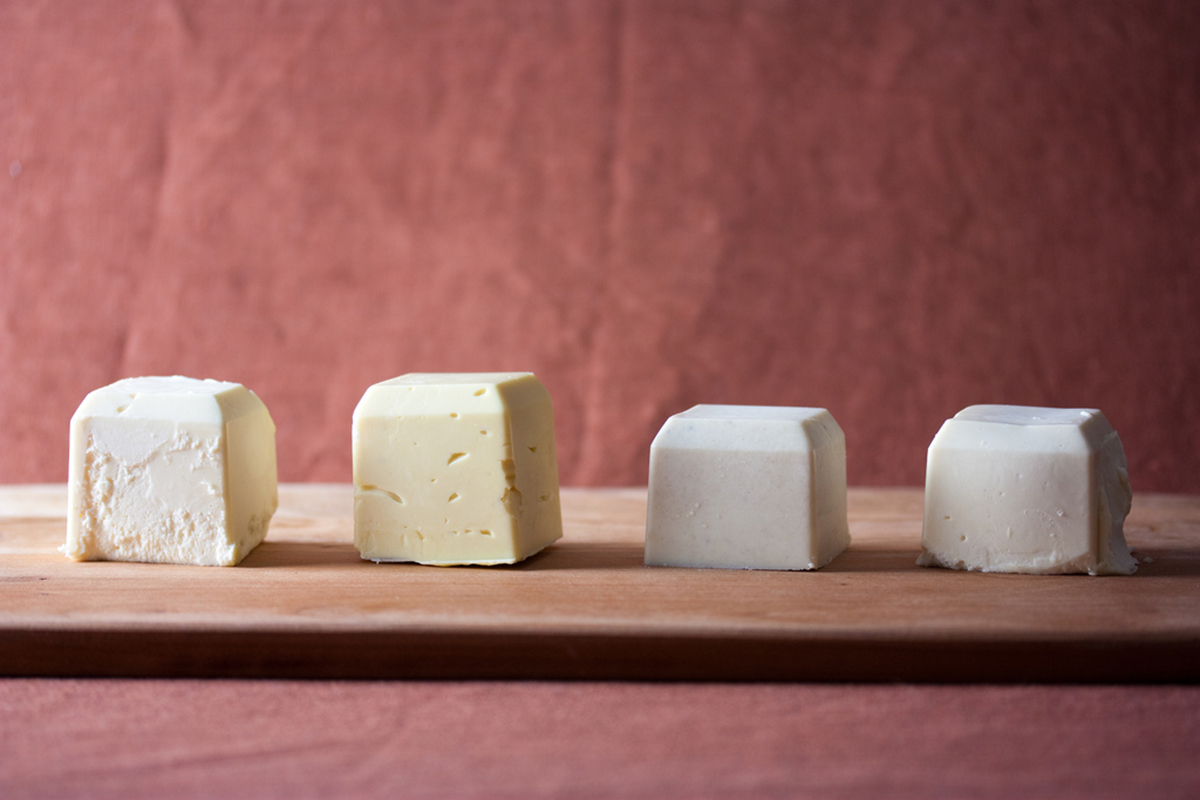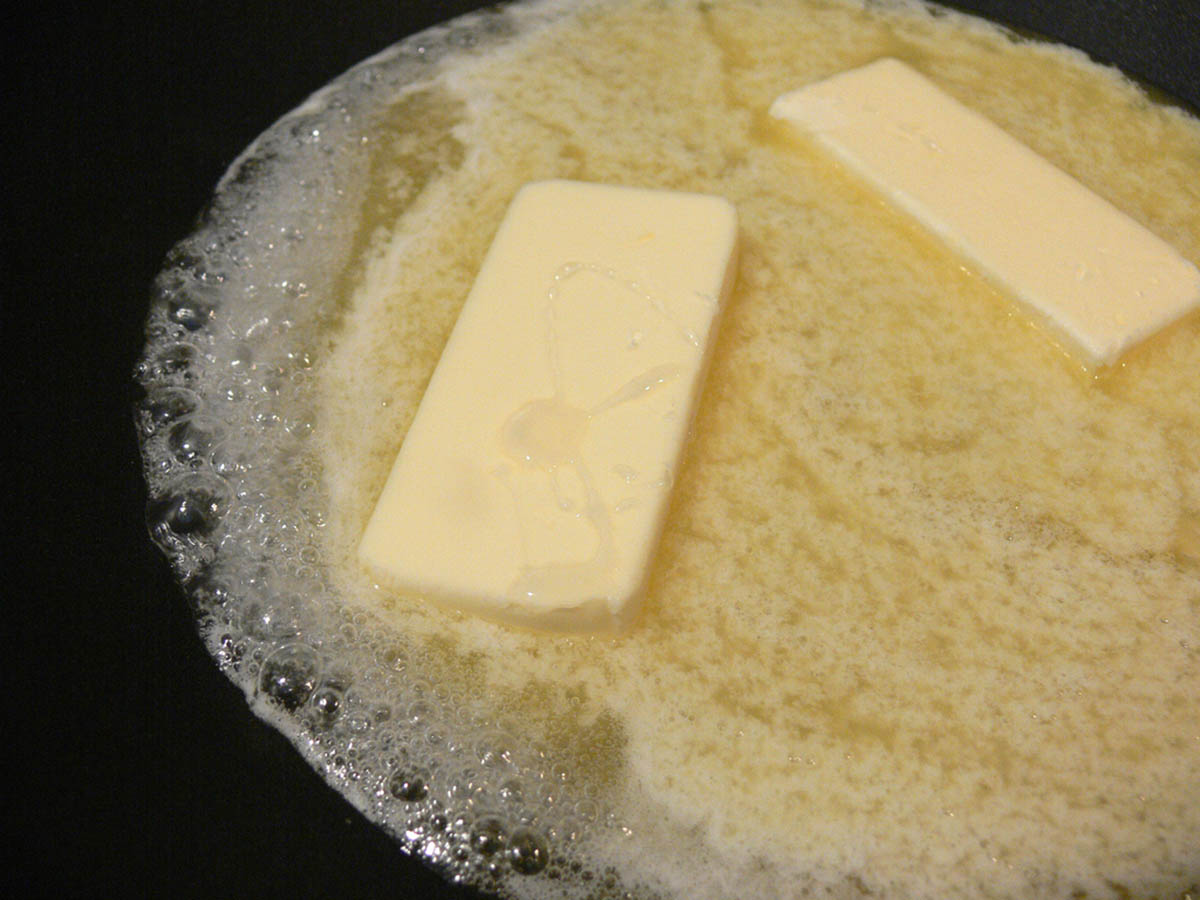From the 1970s, we've all known one truth. Eating butter, giving your child butter - that block of churned yellow dairy, lying innocuously in a dish on the table - is as deadly as snorting cocaine. If we're going to eat butter, we may as well put a sign on our forehead saying "Give Me a Heart-Attack Now". Butter is the bad-boy of the recipe-book. It clogs up our arteries, leaving them furred and ripe for that deadly stroke; blood paused in our veins like water in a stopped-up sink.
No two ways about it: butter is the most evil substance that ever existed.
Or is it?

Recently, more and more of us are abandoning the apparently-healthier margarine, with sales in the UK falling by 7% in the last year. Meanwhile, sales of butter are rising, with sales rising by 4% a year. Here, we look at the reasons, and try and find out which is actually healthier.
Where did we get the idea that butter was bad?
The original research was found in 1913, where a Russian scientist called Nikolaj Nikolajewitsch Aritschkow fed a large amount of animal fats to rabbits. All the animals' cholesterol levels rose to dangerously high levels. Of course, rabbits do not normally eat dairy (unlike humans', their systems cannot digest it), so this was - in retrospect - not surprising. Nevertheless Nikolajewitsch Aritschkow reported his findings about butter and the rest of the world accepted that his theory applied to humans and ran with it.
Thus the "bad butter" myth was born.
In 1953, Ancel Keys conducted research, collecting data from six countries including France and Spain, where the diet is high in fat and heart disease is low. When he discovered these findings, he omitted data from France and Spain from his study, claiming the research was poor. Using the remaining data, he claimed a diet high in fat leads to heart disease.
This prompted the American Heart Association to target fat as the major cause of heart disease in 1957.
But surely, if they say it, it must be true?
Actually, a 2013 study in the British Medical Journal compared death-rates in Australian middle-aged men with heart disease who ate butter to middle-aged men with heart disease who ate margarine. They found men who followed heath advice, and ate margarine, were more likely to die. One possible explanation for this is that margarine is high in Omega-6 fatty-acids, which displaces heart-healthy Omega-3 fats in the body.
READ Hidden Danger of Salt in Your Food
The Framingham Heart Disease Study (between the 1960s and the 1980s) measured many factors that could predict heart disease over a twenty year period (including eating butter, compared to eating margarine). They found that people who ate the most butter were least likely to have a heart attack. In fact, in the second decade of the twenty-year-study, the participants who ate only margarine were a whopping 77% more likely to have a heart attack than the participants who ate a small amount of butter.
Why Might Butter Be Healthier
Lower Omega-6 Levels
Many margarines are high in Omega-6. Not only does this replace the healthy Omega-3 fatty-acids in the body, it can also cause inflammation and make cardiovascular disease more likely.
Omega-6 is a polyunsaturated fatty-acid. We hear "unsaturated" and we automatically think "good". But not all polyunsaturated fats are good for us. The 2013 study in the British Medical Journal found an increased rate of death in males with heart disease with low-fat dietary intervention from 11% with butter to 17.2% with margarine.
Lower risk of death
People who ate butter in the 2013 BMJ study were found to have a 35% decreased chance of dying with cardiovascular disease, and a 29% reduced chance of dying with all causes.

Higher Saturated Fat
We may balk when we hear "saturated fat", but saturated fat is not our enemy. A study by the University of Cambridge found that saturated fat in dairy may protect against diabetes. Another study by McMaster University found no link between ill health and saturated fat.
Healthy saturated fat also raises the "good" HDL cholesterol and helps change your LDL cholesterol from small LDL cholesterol (which is bad) to large LDL cholesterol (which is neutral).
Rich in Conjugated Linoleic Acid
CLA has such a powerful affect on your metabolism that it's actually available in some places as a weight-loss supplement. Conjugated Linoleic Acid may also lower your risk of developing cancer. All those magical properties, and all you have to do is spread it on your toast.
Full of healthy vitamins
Butter is one of the best natural sources of Vitamins A, D, E, K, and the mineral Selenium. While some of these vitamins may be added in artificial form to some margarines, it's best to try and get your vitamins naturally, if possible.
Butter is preferred by specialists
Dr. Aseem Malhotra, London cardiologist and advisor to the National Obesity Forum would always advise clients to choose butter. He believes butter is neither harmful nor helpful but is "neutral". However, he has serious doubts about the long-term use of margarine, saying: "I believe it's potentially harmful."
Chemicals in margarine can be harmful
Margarine contains chemicals called emulsifiers, which makes it smooth enough to spread. Recent research suggests that these chemicals may damage your gut and cause inflammatory bowel disease. This inflammation may, according to researchers at Georgia State University, lead to obesity, diabetes and heart disease.
Isn't it ironic: we all switched to margarine to avoid the very conditions it may be causing.
Who can't eat butter
Most people will be able to enjoy a thin scraping of butter on their toast, or a little pea-sized piece of butter on their potatoes or cabbage.
However, there are some people who can't have a diet high in saturated fat, and who would be better avoiding butter. If you have gallstones, liver disease, or certain types of cancer, you'll need a low-fat diet and should stick to margarine.
READ Twenty-Five Foods That You Probably Didn't Realize Are Too High in Salt
Should I switch to butter?
New research suggests no link between heart disease and the saturated fats in butter. In fact, modern research suggests butter may be better for your gut, your heart, and your general health.
So, if you don't have a reason to avoid fats, now might be the time to reacquaint yourself with an old dairy friend, who goes so well with everything.
- authoritynutrition.com/7-reasons-why-butter-is-good-for-you/
- www.dailymail.co.uk/health/article-3420251/How-great-butter-revival-killing-margarine-turnaround-expert-health-advice-means-popular-spread-soon-toast.html
- www.foodrenegade.com/butter-vs-margarine-showdown/
- www.nhs.uk/news/2013/02February/Pages/omega-6-fat-diet-heart-disease-death-risk.aspx
- www.telegraph.co.uk/food-and-drink/healthy-eating/butter-v-margarine-which-is-healthier/
- Photo courtesy of vegan-baking: www.flickr.com/photos/vegan-baking/5627440253/
- Photo courtesy of jessicafm: www.flickr.com/photos/jessicafm/71922825/


Your thoughts on this